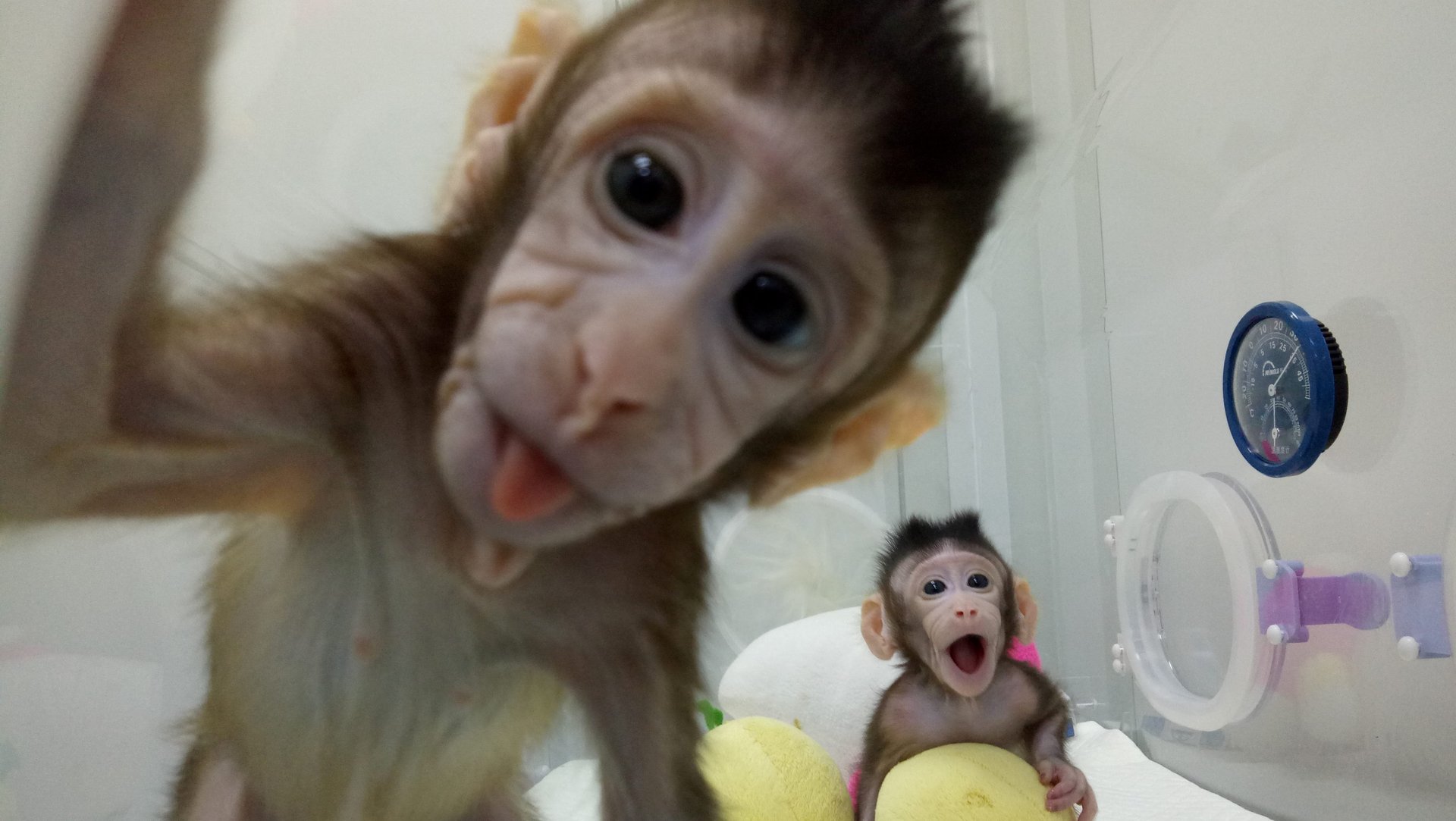Even China’s cloned monkeys have a political message for the world
Researchers in China broke scientific ground a few weeks ago by creating two tiny, adorable monkey clones. It would be easy to think that this is purely in the interest of science. But like most things in China, it is also political.


Researchers in China broke scientific ground a few weeks ago by creating two tiny, adorable monkey clones. It would be easy to think that this is purely in the interest of science. But like most things in China, it is also political.
They key is in the names given to the monkeys, Zhong Zhong and Hua Hua. Each name is a doubling of one character. In the case of Zhong Zhong, that would be 中中. Repeating a character like this creates a kind of cuteness effect in Mandarin. But if you take one character from each name, and put them together, you get the word zhonghua.
Zhonghua is a formal and ancient name for “China.” This term differs from Zhongguo, the name given to the modern nation of China, in important ways. It is more a reference to China as a millennia-old culture, and reminds the Chinese ear of a time in history when the country was the unchallenged world superpower. So any time these monkeys are mentioned, they are a reminder of the great nation that created them.
This naming just happens to occur at a time when Xi Jinping, China’s leader, is trying to reclaim some of that global influence. He and his administration are promoting China as the world’s replacement to a United States that, under Donald Trump, seems to want to retreat from its role as global leader.
If that seems like a stretch, consider the names China gave to a pair of pandas that it gifted to Taiwan. Their names, Tuan Tuan and Yuan Yuan, use the same doubling technique. Taking one character from each and putting them together as tuanyuan, they mean “reunion.” China has a monopoly on giant pandas, so if a country wants to get a hold of some for its zoos, it has no choice but to accept the terms. In this case the terms were panda-names which emphasize Beijing’s position that Taiwan, an independently run democracy, is part of China.
The politics of panda names keeps going. Hua Mei, who lives in the San Diego zoo, is a combination of terms for “China” and “United States.” Most other pandas in the US contain the character mei, part of the Chinese name for America.
Of course, a handful, like Lin Bing in the Chiang Mai zoo, just have pleasant-sounding names chosen in online polls—which might have something to do with the relative lack of geopolitical pressure in relationships like the one between Thailand and China.
Xi Jinping wants the world to see China as a global leader, whether in politics, economics, or science. He wants you to remember who cloned those monkeys.